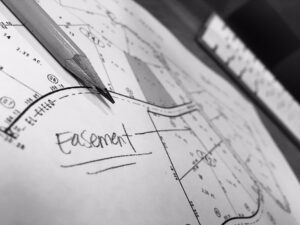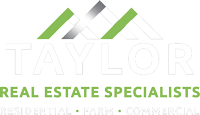 If you’re considering investing in commercial real estate, understanding key terminology is essential. Below, we’ve compiled a list of important terms that every investor, landlord, and tenant should know.
If you’re considering investing in commercial real estate, understanding key terminology is essential. Below, we’ve compiled a list of important terms that every investor, landlord, and tenant should know.
Assessed Value
The value of a property as determined by the tax assessor for the purpose of calculating real estate taxes.
Capitalization Rate (Cap Rate)
A percentage that indicates the return on an income-producing property. It is calculated by dividing the net operating income (NOI) by the property’s purchase price.
Commercial Real Estate
Any property designed to generate income, including multifamily residential, office, industrial, and retail spaces. Unlike residential real estate, which is used for living purposes, commercial real estate is primarily for business operations.
Common Area Maintenance (CAM)
Additional charges paid by tenants, in addition to base rent, for maintaining shared spaces such as parking lots, outdoor lighting, and landscaping. CAM fees typically do not include capital improvements.
Earnest Money
A deposit made by a buyer to demonstrate commitment to purchasing a property. This payment is usually held in escrow and applied to the purchase price at closing.
Lease Types in Commercial Real Estate
Understanding lease agreements is crucial for tenants and landlords alike:
- Triple Net Lease (NNN): The tenant is responsible for property taxes, building insurance, and common area maintenance, in addition to rent.
- Gross Lease: The landlord covers all operating expenses, and the tenant pays a fixed rent amount.
Loan to Value (LTV)
A ratio comparing the loan amount to the property’s market value. LTV is calculated as loan amount / property value and is a key factor in commercial real estate financing.
Net Operating Income (NOI)
A measure of a property’s profitability, calculated by subtracting all operating expenses from total revenue. NOI excludes mortgage payments, depreciation, and capital expenditures.
Tenant Improvements (TI)
Modifications made to a leased space to meet a tenant’s needs. Landlords may offer tenant improvement allowances to help cover the costs of renovations.
Why Work with a Commercial Real Estate Expert?
Understanding commercial real estate terminology is just the beginning. If you’re looking to invest in commercial real estate, having an experienced commercial realtor on your side can make all the difference.
Work with Lisa – Your Trusted Commercial Real Estate Partner
Looking for expert guidance in your next real estate investment? Contact Lisa today to discuss how she can help you navigate the commercial real estate market with confidence.
Next, read about Why You Should Consider Lisa as your commercial REALTOR®!
Interested in better understanding the tax implications of owning commercial real estate then visit the IRS Real Estate Tax Center.
